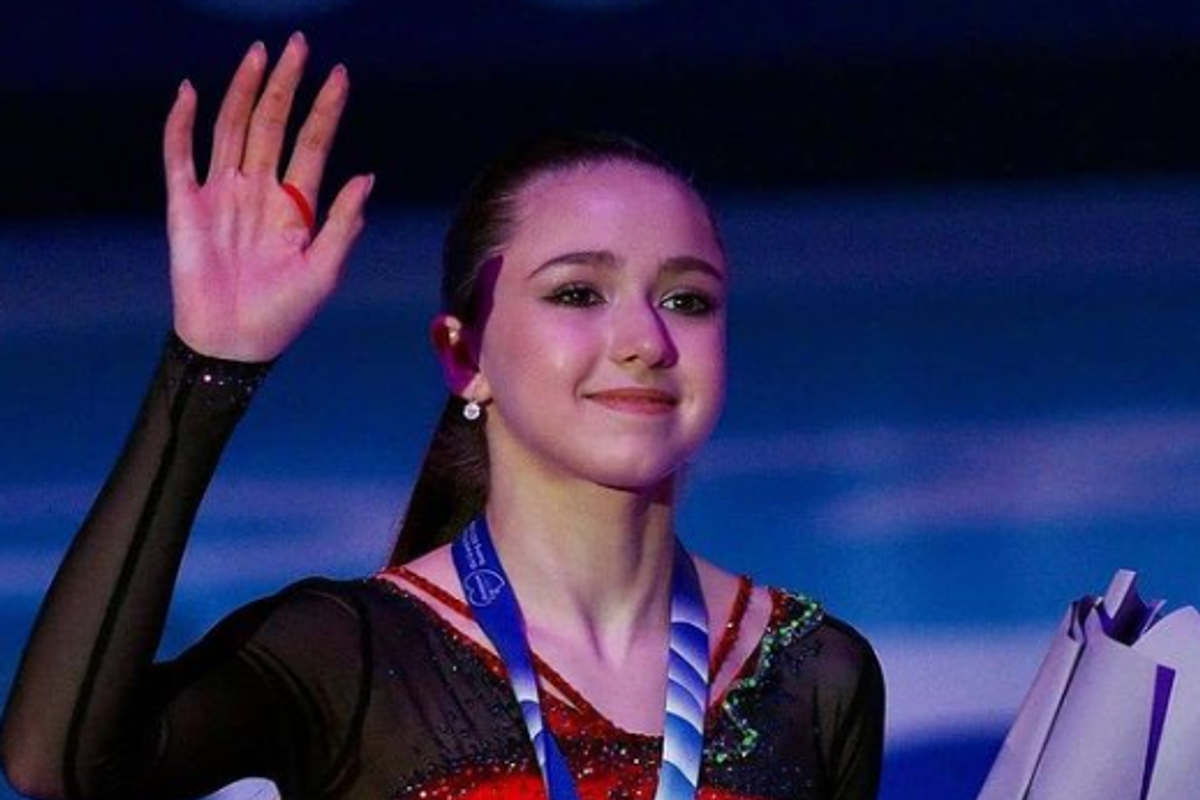
Russian figure skater Kamila Valieva.
The Olympics are upon us again and as we all gather around the television, or keep track of the medals won via our mobile device, there now seems to be a bit of a shadow. Not only are athletes having to contend with the COVID-19 crisis and strict protocols, resulting in no fans to cheer them on, and losing some team members to quarantine, they’re also contending with a new doping scandal.
Fifteen-year-old Russian figure skater Kamila Valieva tested positive for a restricted substance, which should have disqualified her from competing. This disqualification would have cost Russia the gold, but as the world awaited the decision, we were left with more questions than answers. Valieva would be allowed to continue to compete.
Sha\u2019Carri Richardson was prohibited from competing at Olympics due to out-of-competition positive of drug unrelated to sport performance.\nKamila Valieva is being allowed to compete at Olympics although she had in-competition positive of drug clearly related to sport performance.pic.twitter.com/pz8upIWQXs— Neal Rogers (@Neal Rogers) 1644848699
Last summer we saw a different scenario play out with Sha’Carri Richardson, a young American runner who was poised to medal in the summer Olympics but was disqualified for a failed drug test shortly before the games were scheduled to start. Richardson tested positive for marijuana, which she admitted after finding out her mother died during an interview. The committee knew what transpired that led to the lapse in judgment, and Richardson took accountability for her mistake, yet she was still disqualified in an effort to keep the Olympic games drug-free and the rules fairly applied across the board.
With the news of Kamila Valieva failing her drug test for a substance called trimetazidine, people are scratching their heads, including Richardson. Trimetazidine is a heart medication that can be used as a performance enhancer due to its ability to increase blood flow to the heart, which then pumps more blood to the muscles enhancing one's ability to compete. Richardson posted to Twitter calling out the decision-makers, saying “Can we get a solid answer on the difference of her situation and mines? My mother died and I can’t run and was also favored to place top 3. The only difference I can see is I’m a black young lady.”
Can we get a solid answer on the difference of her situation and mines? My mother died and I can\u2019t run and was also favored to place top 3. The only difference I see is I\u2019m a black young lady.https://twitter.com/usatoday/status/1493190527348449289\u00a0\u2026— Sha\u2019Carri Richardson (@Sha\u2019Carri Richardson) 1644843808
While Valieva is young, and the drugs found in her system were likely the result of the adults around her hoping to give her an edge over the competition, it still doesn’t fall in line with the anti-doping rules of the Olympic Committee, yet the Court of Arbitration for Sports has given the green light for Valieva’s continued participation. This decision not only seems to disregard the athletes working to compete in a way that is fair, but also those who have stayed clean of any and all performance-enhancing substances. The decision is also one in stark contrast to the one swiftly handed down to Richardson, so one must ask what the difference could be?
Marijuana isn’t known for enhancing anyone’s ability to do anything other than watch a marathon of your favorite show on Netflix while eating your weight in chips and queso, but that didn’t seem to matter when it counted most for Richardson. This is a tale of two athletes. One, a white child with adults around her likely making the poor decision to violate the anti-doping rules, and the other, a Black young woman who made a poor choice in her grief after she found out she lost her mother from a reporter during an interview on live television. Why is one the exception to the rule?
There seems to be a fairly clear answer to this question, but according to the Court of Arbitration for Sports, it would have caused Valieva “irreparable harm” to be disqualified. If irreparable harm is the factor that keeps Kamila Valieva in the games, then we all owe Richardson a heartfelt apology. Her mother passed away, and she was informed in a way that would’ve crushed anyone, and yet she had to sit out a career-changing and life-altering moment because she grieved in the way that brought her a moment of relief.
- Olympic speedskater gives up her spot to teammate - Upworthy ›
- Two girls head to the Olympics for skateboarding at age 12 - Upworthy ›
- Mexican figure skater Donovan Carrillo has already made Olympic ... ›
- Olympic figure skater takes 'Wednesday' dance for a spin - Upworthy ›

